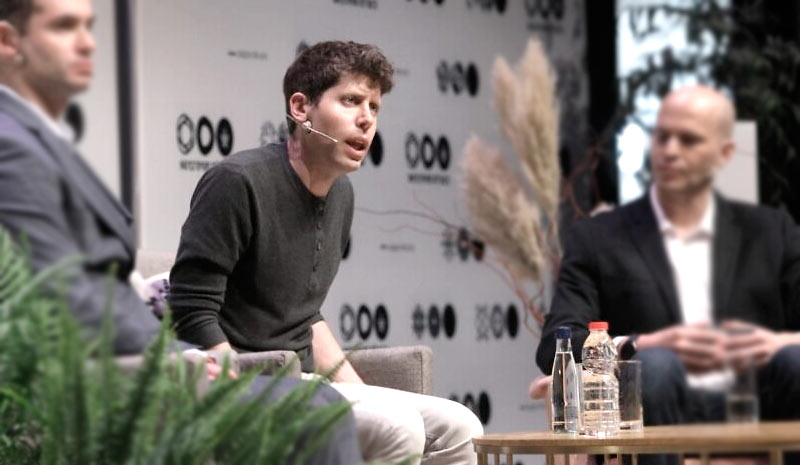Ahead of OpenAI CEO Sam Altman’s in exile, several staff researchers wrote a letter to the board of directors warning of a powerful artificial intelligence discovery that they said could threaten humanity, according to Reuters.
The previously unreported letter and AI algorithm were key developments before the board’s ouster of Altman, the poster child of generative AI.
According to Beinsure Data, Global Generative AI in Insurance Market size will be worth $5,5 bn by 2032 from its current size of $346.3 mn, and growing at a CAGR of 32.9% through the next decade.
The sources cited the letter as one factor among a longer list of grievances by the board leading to Altman’s firing, among which were concerns over commercializing advances before understanding the consequences.
OpenAI acknowledged a project called Q* and a letter to the board before the weekend’s events.
Some at OpenAI believe Q* (pronounced Q-Star) could be a breakthrough in the startup’s search for what’s known as artificial general intelligence.
An artificial general intelligence (AGI) is a hypothetical type of intelligent agent. If realized, an AGI could learn to accomplish any intellectual task that human beings or animals can perform.
Alternatively, AGI has been defined as an autonomous system that surpasses human capabilities in the majority of economically valuable tasks. AGI is a common topic in science fiction and futures studies.

The timeline for AGI development remains a subject of ongoing debate among researchers and experts.
Some argue that it may be possible in years or decades; others maintain it might take a century or longer; and a minority believe it may never be achieved. Additionally, there is debate regarding whether modern large language models, such as GPT-4, are early yet incomplete forms of AGI or if new approaches are required.
OpenAI defines AGI as autonomous systems that surpass humans in most economically valuable tasks.
Given vast computing resources, the new model was able to solve certain mathematical problems, the person said on condition of anonymity because the individual was not authorized to speak on behalf of the company. Though only performing math on the level of grade-school students, acing such tests made researchers very optimistic about Q*’s future success, the source said.
Researchers consider math to be a frontier of generative AI development.
Currently, generative AI is good at writing and language translation by statistically predicting the next word, and answers to the same question can vary widely.
But conquering the ability to do math — where there is only one right answer — implies AI would have greater reasoning capabilities resembling human intelligence. This could be applied to novel scientific research, for instance, AI researchers believe.
There has long been discussion among computer scientists about the danger posed by highly intelligent machines, for instance if they might decide that the destruction of humanity was in their interest.
Altman led efforts to make ChatGPT one of the fastest growing software applications in history and drew investment – and computing resources – necessary from Microsoft to get closer to AGI.
In addition to announcing a slew of new tools in a demonstration, Altman teased the major advances were in sight.







